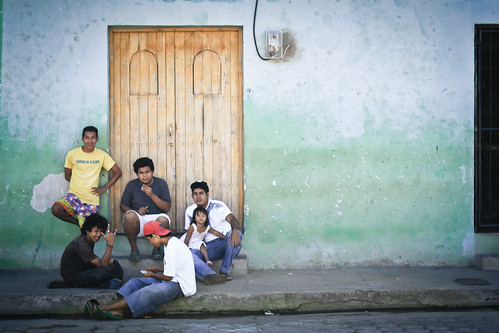The history behind Nicaragua’s exit from the OAS
Nicaragua #Nicaragua

San José, November 18 (EFE).Sunday marks the end of Nicaragua’s process to leave the Organization of American States (OAS), which began two years ago, but stems from the socio-political crisis that erupted in the Central American country in April 2018.
The Sandinista government submitted a formal request to leave the OAS after the OAS General Assembly of Foreign Ministers condemned the 2021 elections, in which President Daniel Ortega was re-elected for a fifth term, four of them consecutive (1985-1990 and 2007-2027), while his main rivals were imprisoned.
The 51st General Assembly of the OAS decided by a majority that the elections that secured Ortega’s permanence in power, alongside his wife Vice President Rosario Murillo, “were not free, fair or transparent and lacked democratic legitimacy.”
These elections, held on November 7, 2021, were notable for the absence of seven potential opposition presidential candidates who were imprisoned prior to the elections on charges of “treason,” as well as the elimination of three opposition parties, the cancellation of electoral observation, discrepancies over the level of participation and a series of laws restricting participation in the process.
Arguments of the Sandinista Government
In response, the Nicaraguan government announced its resignation and disassociation from the OAS, of which it was a founding member in 1948.
In a denunciation letter, Nicaraguan Foreign Minister Denis Moncada announced his country’s “indeclinable” decision to denounce the OAS Charter initiating the definitive withdrawal and resignation of Nicaragua from this organization.
In the text, Managua accused the OAS of failing to comply with, irresponsibly disregarding, and violating its own Charter on respect for the sovereign equality of states, non-interference in internal affairs, and the non-imposition of unilateral, illegal, and coercive measures.
In addition, it said the OAS was a diplomatic-political forum “born under the influence of the United States as an instrument of interference and intervention, and its actions against Nicaragua have shown that this organization, which is permanently based in Washington, has as its mission to facilitate the hegemony of the United States through its interventionism in the countries of Latin America and the Caribbean.”
Since the popular demonstrations that erupted in April 2018 against the Ortega government, in which at least 355 people were killed, according to the Inter-American Commission on Human Rights (IACHR), the Permanent Council of the OAS has adopted 12 resolutions on the situation in Nicaragua.
In these resolutions, the OAS condemned the state’s use of force to neutralize the protests, and in seven of them demanded the release of opponents and critics of Ortega.
The rebellion of the ambassador
Four months after denouncing the OAS Charter, the Nicaraguan ambassador to the OAS, Arturo McFields, rebelled against the Ortega government with a harsh and unexpected plea in which he denounced the “dictatorship” in his country and demanded the release of political prisoners.
“I must speak, even if I am afraid, even if my future and that of my family is uncertain. I have to speak because if I don’t, the stones themselves will speak for me,” declared McFields, who said he was speaking “on behalf of more than 177 political prisoners and more than 350 people who have lost their lives” in Nicaragua since 2018.
A day later, Ortega officially dismissed his diplomatic representative.
On April 24, 2022, the National Police forcibly occupied the offices rented by the OAS in Managua, and three days later the government formalized the expropriation of the building, where it initially announced that it would create a “Museum of infamy.”
On Aug. 22 of that year, the government, through the Attorney General’s Office, gave the building to the National Autonomous University of Nicaragua (UNAN), and on Feb. 23, 2023, the “Father Miguel D’Escoto Brockmann House of Sovereignty” Study Center was inaugurated there.
On Nov. 8, the OAS Permanent Council reminded President Ortega that he will continue to be obliged to respect human rights once the Central American country completes its exit from the organization.EFE
mg/ics